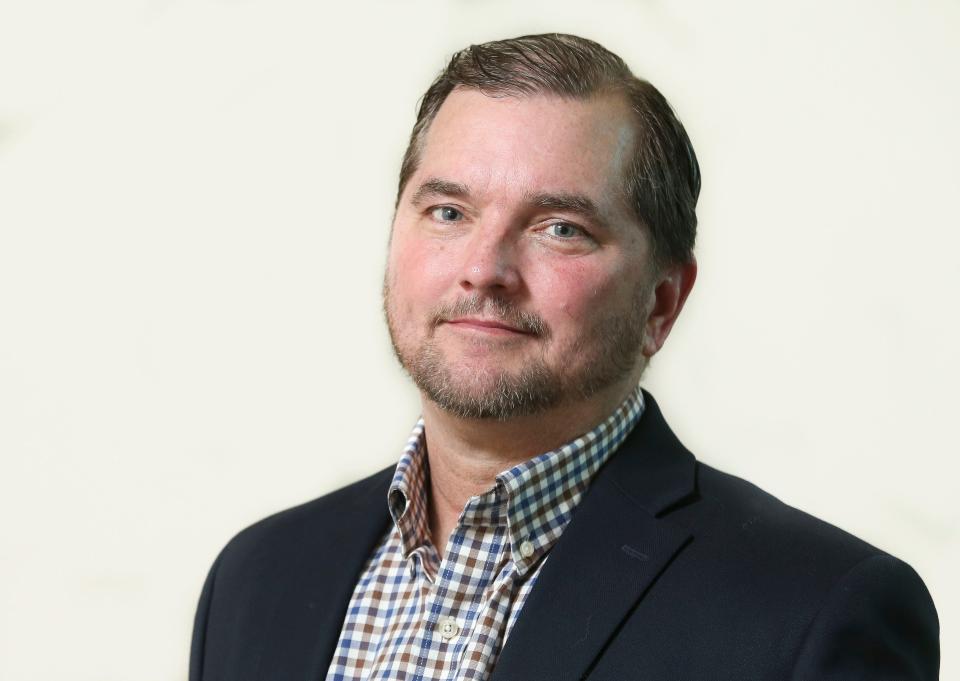Willie Mays was before my time, but I'll never forget his Rickwood Field tribute | Goodbread
BIRMINGHAM — Before Thursday night's MLB at Rickwood Field tribute to the Negro Leagues, my lasting image of baseball Hall of Famer Willie Mays was his legendary catch in Game 1 of the 1954 World Series. The New York Giants centerfielder sprinted toward the wall, his back squarely facing home plate, looked straight up to find a booming fly ball and snagged what would come to be known simply as The Catch.
By lasting image, I don't mean I was there to see it.
Mays was well before my time, but video of the play lives eternally on any respectable loop of the greatest plays in baseball history. He had logged 19 seasons in the Major Leagues by the time I was born. Plus one season with the Negro American League's Birmingham Black Barons, with yet another season lost to his 1953 military service.
GOODBREAD: MLB Rickwood Field tribute was for legends like Willie Mays, but also for the anonymous
Then again, he was before the time of almost everyone who was at Rickwood Field on Thursday.
There were a few exceptions, including 99-year-old Bill Greason, the oldest living Negro League player, who was a teammate of Mays in his only season with the Black Barons in 1948. Greason is still in Birmingham, serving as a Baptist preacher, and was on hand to see the Negro League legacy honored just two days after Mays passed away at age 93.
The Catch, however, lives on.
During pregame festivities, Greason and a few dozen other Negro League players were escorted by the San Francisco Giants and St. Louis Cardinals, several in wheelchairs, to line up along the infield baselines. Mays' son, Michael, along with former MLB stars Barry Bonds and Ken Griffey Jr., greeted each Negro Leaguer one at a time.
Mays' absence made for a surreal scene; a celebration of his career and a mourning of his loss both tied to the same moment. All at a 114-year-old ballpark that's not only in his hometown, but in his old West End neighborhood.
Rickwood's age shows, but its age is its appeal. There are only 25 rows of seats from field level to the top of the stadium, wrapping the diamond from shallow left field all the way around to a couple sections behind the right field wall. Capacity is only 10,800, but the old-school configuration gives fans the cozy feel of half that. A roof that clearly needs some work, supported by steel beams that understandably show some rust, offers shade from the blistering Alabama sun for most of a sellout crowd. Under the roof, dim lights hang along with bullhorn speakers that carry the PA announcer's voice to every seat. The park sits squarely in a residential area, with none of the modern amenities.
When it was built in 1910 by Rick Woodward, who ran the Woodward Iron Company, the ballgames themselves were the only amenity anyone cared about.
As a kid, Mays grew up dreaming of playing at Rickwood Field with no idea that, after his first year there, he'd be too good to stay. As a teenager, he'd been teammates with his father, Cat Mays, in the Birmingham Industrial League; but at the tender age of 17, he was already good enough to join the Black Barons in 1948. Just a year earlier, Jackie Robinson had crossed the color line to begin the integration of Major League Baseball. After Mays tore up minor league pitching for two years − he hit .477 at Triple-A − he embarked on a 23-year MLB career beginning in 1951, and was in the Hall of Fame 660 home runs later.
But it all started here at Rickwood, and the Say Hey Kid's memory was at the center of Thursday night's tribute. On Monday, Mays told the San Francisco Chronicle that he very much wanted to attend, but wasn't in good enough health to do so.
“(Rickwood) felt like it had been there forever, like a church,” Mays said in a statement released by the Giants the day before his passing. “The first big thing I ever put my mind to was to play at Rickwood Field. It wasn’t a dream. It was something I was going to do. I was going to work hard to be one of the Birmingham Black Barons and play ball at Rickwood Field."
The church was well-decorated on Thursday.
Had he been alive a couple more days and been well enough to travel, Mays would've seen his jersey No. 24 displayed in chalk, bold and large, behind home plate. He'd have seen the Willie Mays Pavilion overlooking the left-field line, and a Mays mural outside the park, and his picture welcoming every fan who passed through Rickwood's primary entrance. He'd have seen a 24-foot-tall image of a Willie Mays Topps baseball card, commissioned by the Birmingham Civil Rights Institute, emblazoned on the side of a nearby parking deck. Replicas of Mays' No. 24 Giants jersey were everywhere; his highlights in the loop on a massive videoboard in right-centerfield. It went without saying that Mays' hometown crowd was there largely for him − it was, after all, an event where the point was to honor the many − but so much of what was seen and heard made that ring true.
And with that, going forward, a day a Rickwood Field has made Mays' famous catch the second thing I'll associate with him.
First, I'll think of his neighborhood ballpark.

Tuscaloosa News columnist Chase Goodbread is also the weekly co-host of Crimson Cover TV on WVUA-23. Reach him at cgoodbread@gannett.com. Follow on X.com @chasegoodbread.
This article originally appeared on The Tuscaloosa News: Willie Mays was before my time, but his Rickwood tribute will stay with me forever

